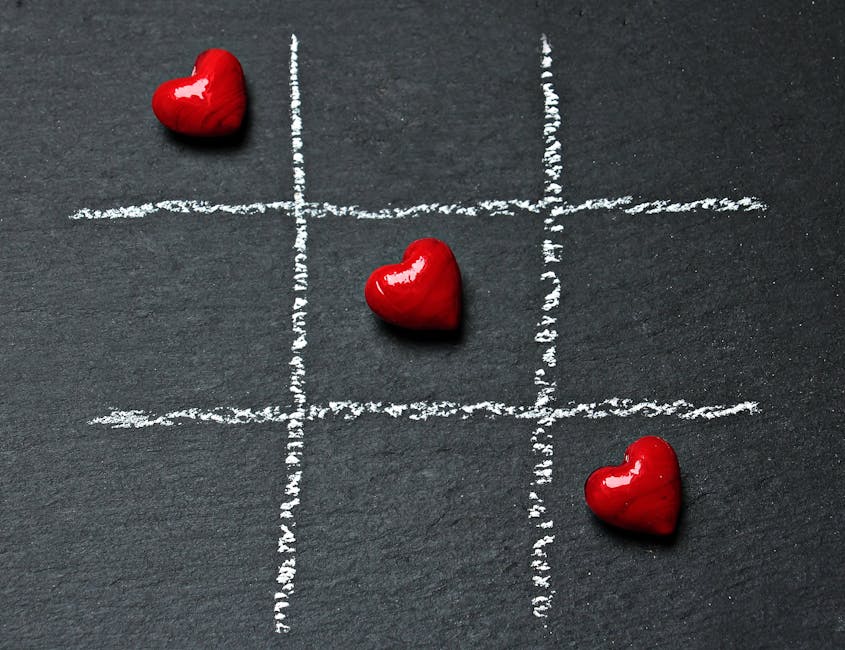How To Practice Forgiveness In Friendships?
Forgiveness in friendships is about letting go of grudges and choosing to move forward with understanding and compassion. It’s not always easy, but it’s essential for maintaining meaningful connections. If you’ve ever struggled with forgiving a friend, you’re not alone. Keep reading to learn practical steps, emotional insights, and the long-term benefits of forgiveness that can transform your relationships.
Key Takeaways
- Forgiveness is a conscious decision to release resentment and anger.
- It strengthens friendships and fosters emotional growth.
- Practicing forgiveness involves empathy, communication, and setting boundaries.
- Letting go of grudges improves mental well-being and deepens connections.
Understanding Forgiveness in Friendships
Definition of Forgiveness
Forgiveness is the act of releasing feelings of anger, resentment, or revenge toward someone who has wronged you. It doesn’t mean forgetting what happened or excusing bad behavior. Instead, it’s about freeing yourself from the emotional weight of the conflict.
Think of forgiveness as unclenching your fist after holding onto a thorny rose. The pain doesn’t vanish instantly, but you stop hurting yourself by holding on.
Importance of Forgiveness in Maintaining Friendships
Friendships thrive on trust, mutual respect, and understanding. When conflicts arise, forgiveness acts as the glue that holds the bond together. Without it, even the strongest friendships can crumble under the weight of unresolved issues.
Forgiving a friend doesn’t just heal the relationship—it also helps you grow emotionally. It teaches you patience, empathy, and the ability to see things from another perspective.
Common Misconceptions About Forgiveness
Many people think forgiving means condoning bad behavior or pretending nothing happened. That’s not true. Forgiveness is about acknowledging the hurt, addressing it, and choosing to move forward. It’s not about being a doormat; it’s about reclaiming your peace.

Recognizing the Need for Forgiveness
Identifying Hurt and Resentment in Friendships
Have you ever felt a knot in your stomach when thinking about a friend? That’s often a sign of unresolved hurt. Resentment can sneak into friendships like a slow leak in a tire—hard to notice at first but damaging over time.
The Impact of Unforgiveness on Relationships
Holding onto grudges can create emotional distance. It’s like building a wall brick by brick, making it harder to connect. Over time, unforgiveness can lead to bitterness, mistrust, and even the end of the friendship.
Signs It’s Time to Address the Issue
If you’re replaying arguments in your head or avoiding your friend, it’s time to address the issue. Ignoring it won’t make it go away. Instead, it will fester and grow, making reconciliation even harder.

The Four Stages of True Forgiveness
Stage 1: Hate – Acknowledging Negative Emotions
Understanding Anger and Resentment
Anger is a natural response to being hurt. It’s okay to feel it, but holding onto it can be toxic. Recognizing your anger is the first step toward letting it go.
Accepting the Reality of the Conflict
Denial only prolongs the pain. Accepting what happened allows you to process your emotions and begin healing.
Stage 2: Hurt – Processing Emotional Pain
Allowing Yourself to Feel Vulnerable
Vulnerability is scary but necessary. It’s like cleaning a wound—it stings, but it’s essential for healing.
Avoiding Suppression of Emotions
Bottling up your feelings is like shaking a soda can. Eventually, it will explode. Instead, find healthy ways to express your emotions, like journaling or talking to someone you trust.
Stage 3: Heal – Taking Steps Toward Reconciliation
Practicing Empathy and Understanding
Put yourself in your friend’s shoes. What might they have been feeling or thinking? Empathy can soften your heart and pave the way for forgiveness.
Letting Go of the Need for Revenge
Revenge might feel satisfying in the moment, but it doesn’t solve anything. Letting go of that desire is liberating.
Stage 4: Come Together – Rebuilding Trust
Open Communication and Setting Boundaries
Talk openly with your friend about what happened and how you felt. Set boundaries to prevent future misunderstandings.
Strengthening the Friendship
Use the conflict as a learning experience. Friendships that survive challenges often come out stronger.

Practical Steps to Practice Forgiveness
Reflecting on the Situation Objectively
Take a step back and look at the situation from a neutral perspective. What happened? Why did it hurt you? Understanding the root of the issue can help you move forward.
Communicating Your Feelings Honestly
Honest communication is key. Share your feelings without blaming or accusing. Use “I” statements, like “I felt hurt when…”
Offering and Accepting Apologies
Apologies are a two-way street. Be willing to offer one if you’ve made a mistake, and be open to accepting one from your friend.
Setting Healthy Boundaries Moving Forward
Boundaries aren’t walls—they’re fences with gates. They protect your emotional well-being while allowing healthy interactions.

Lessons in Forgiveness and Growth
Accepting Differences in Friendships
Embracing Diverse Perspectives
Friends won’t always see eye to eye, and that’s okay. Embracing their unique viewpoints can enrich your friendship.
Respecting Individual Weaknesses
Nobody’s perfect. Learning to accept your friend’s flaws can make your bond stronger.
Building Resilience Through Forgiveness
Learning to Let Go of Grudges
Letting go of grudges is like dropping a heavy backpack. It frees you to enjoy life and your friendships.
Fostering Emotional Maturity
Forgiveness helps you grow emotionally. It teaches you patience, empathy, and the value of peace.
Strengthening Friendships Through Forgiveness
Forgiveness isn’t just about fixing what’s broken. It’s about building something even better. Strong friendships are built on trust, understanding, and the willingness to forgive.

Challenges in Forgiving and How to Overcome Them
Dealing with Repeated Offenses
If a friend keeps hurting you, it’s okay to address the pattern. Forgiveness doesn’t mean tolerating bad behavior.
Balancing Forgiveness with Self-Respect
Forgiveness and self-respect go hand in hand. You can forgive someone while still setting boundaries to protect yourself.
Knowing When to Walk Away
Sometimes, the healthiest choice is to let go. If a friendship is consistently toxic, it’s okay to move on.
The Long-Term Benefits of Forgiveness in Friendships
Improved Emotional Well-Being
Forgiveness reduces stress and promotes inner peace. It’s like clearing out emotional clutter.
Deeper and More Meaningful Connections
Forgiveness strengthens the bond between friends, creating a deeper connection.
Creating a Positive Ripple Effect in Other Relationships
When you practice forgiveness, it spills over into other areas of your life. It makes you a more compassionate and understanding person.

Forgiveness in friendships isn’t always easy, but it’s worth it. By letting go of anger and resentment, you open the door to healing, growth, and stronger connections. If you’re looking to build healthier relationships, check out this guide for more tips. Or, if you’re struggling with self-compassion, this article might help you on your journey. Remember, forgiveness isn’t just for your friend—it’s for you too. Let it be the gift you give yourself.
FAQ: How to Practice Forgiveness in Friendships? A Gentle Guide to Healing and Growth
Why is forgiveness important in friendships?
Forgiveness is essential in friendships because it helps maintain trust, emotional connection, and mutual respect. It allows both parties to move past conflicts and grow stronger together rather than letting resentment damage the relationship over time.
How do I know if I’m ready to forgive a friend?
You may be ready to forgive when you feel a genuine desire to let go of anger and resentment. It often involves reflecting on the situation, understanding your emotions, and prioritizing the value of the friendship over the hurt caused.
What steps can I take to forgive a friend who hurt me?
Start by acknowledging your feelings and the impact of their actions. Communicate openly with your friend about how you feel, seek to understand their perspective, and decide whether you’re willing to rebuild trust. Forgiveness is a process, so be patient with yourself.
Can forgiveness happen without an apology?
Yes, forgiveness can occur without an apology. It’s more about freeing yourself from negative emotions than waiting for the other person to take responsibility. However, rebuilding the friendship may require mutual understanding and effort from both sides.
How do I rebuild trust after forgiving a friend?
Rebuilding trust takes time and consistent effort. Start with small steps, set clear boundaries, and observe their actions over time. Open communication and mutual respect are key to restoring trust in the relationship.
What if my friend doesn’t change after I forgive them?
If your friend doesn’t change, it’s important to reassess the relationship. Forgiveness doesn’t mean tolerating repeated hurtful behavior. You can forgive while choosing to set boundaries or distance yourself for your emotional well-being.
Is it okay to take time before forgiving a friend?
Absolutely. Forgiveness is a personal process that takes time. Rushing it may lead to unresolved feelings. Take the time you need to process your emotions and reach a place of genuine forgiveness.
How can I forgive myself for mistakes I’ve made in friendships?
Self-forgiveness starts with acknowledging your mistakes and taking responsibility for them. Apologize sincerely to your friend, learn from the experience, and commit to doing better in the future. Remember, everyone makes mistakes, and growth comes from learning and improving.
What are some signs that forgiveness has been achieved in a friendship?
Signs of forgiveness include feeling at peace with the situation, letting go of resentment, and being able to interact with your friend without lingering negativity. It often involves a renewed sense of trust and a willingness to move forward together.
How can forgiveness strengthen a friendship?
Forgiveness can strengthen a friendship by fostering deeper understanding, empathy, and resilience. Overcoming challenges together builds a stronger bond and demonstrates the commitment both friends have to maintaining their relationship.



